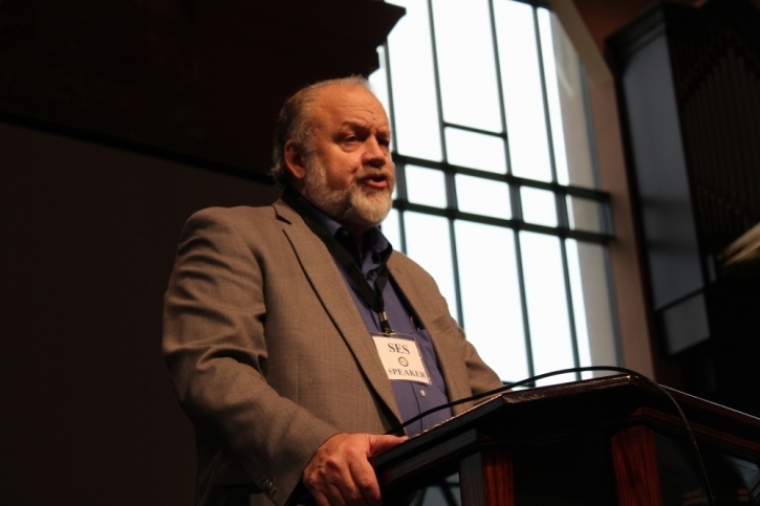'We have more evidence than we need' to prove Christianity, apologist says

Believers in Jesus Christ "have more evidence than they need" to intellectually defend the claims of Christianity, says noted apologist and Liberty University professor Gary Habermas.
Habermas, a New Testament scholar who chairs Liberty's Department of Philosophy, noted in a recent interview that he believes Christians "often crawl into a cubby hole and are embarrassed of being called out" or told that they "don't have any evidence."
"But there's an incredible amount of evidence for Christianity," Habermas said on Alex McFarland's "Truth for a New Generation" program on Sunday. "I mean, we have more evidence than we need, we frankly do."
He explained that not only is the Christian faith a "fantastic message," but it's a message that is "incredibly, highly evidenced from an incredible number of different perspectives."
"Heavy evidence from almost 10 different perspectives, data that skeptics will often acknowledge. We've got the best evidence in the world, but [also] the most evidenced religious message," continued Habermas.
For example, when dealing with the claim of some atheist groups that Jesus never existed, he cited atheist scholar Bart Erhman, who in 2012 released a book arguing in favor of the historical existence of Jesus.
"[Erhman] says that of all the thousands of professors in religion and cognate subjects, people who teach in colleges, and universities, and seminaries, he says that to his knowledge not a single one of them would teach that Jesus never lived," Habermas explained.
"They want people to think that scholarship agrees with them and Bart Erhman kind of called them out and, interestingly enough, a lot of them were not happy with him."
McFarland then mentioned the 2004 book The Case for the Resurrection of Jesus, which Habermas co-authored with Michael Licona, when asking him about how 75 percent of scholars acknowledge the historical existence of the empty tomb on Easter Sunday.
"Michael Grant, the Roman historian, said that if we apply to the empty tomb the normal historical rules that we apply to any event, he says you really don't have any options other than to accept the historicity of the empty tomb," responded Habermas. "And that's a secular historian."
McFarland and Habermas also discussed the rise of Christian apologetics over the past two generations, with McFarland calling it a "cultural juggernaut."
"I think apologetics has been used by God, because it does unify the Body of Christ to a degree," said McFarland. "I remember, I went around to all these pastors and youth pastors and Christian schools and I said, 'Listen, imagine if a theology lecture and a Billy Graham crusade could be combined. That's kind of what we're after.'"
"We're going to win the lost and equip the saved. And so many people said 'that will never work,' but it worked."
Habermas agreed, noting that when he first began teaching at Liberty in 1981 he could recall many people who took issue with the idea of apologetics, believing that it was unnecessary.
"Almost 40 years later, I'm told by publishing houses regularly [apologetics] is the hottest topic in their publishing line," said Habermas.
Read more about Christian apologetics on The Christian Post.